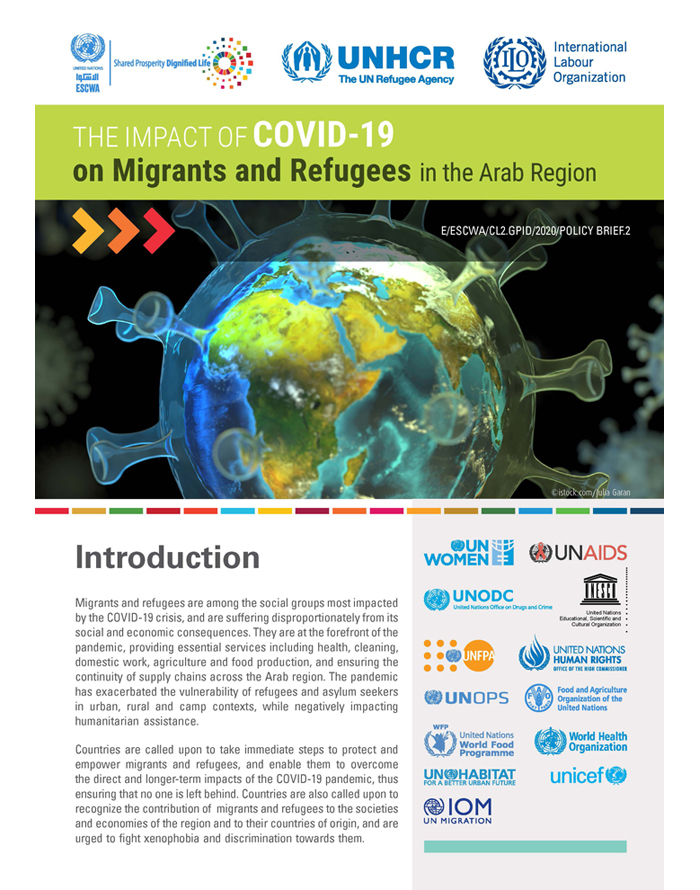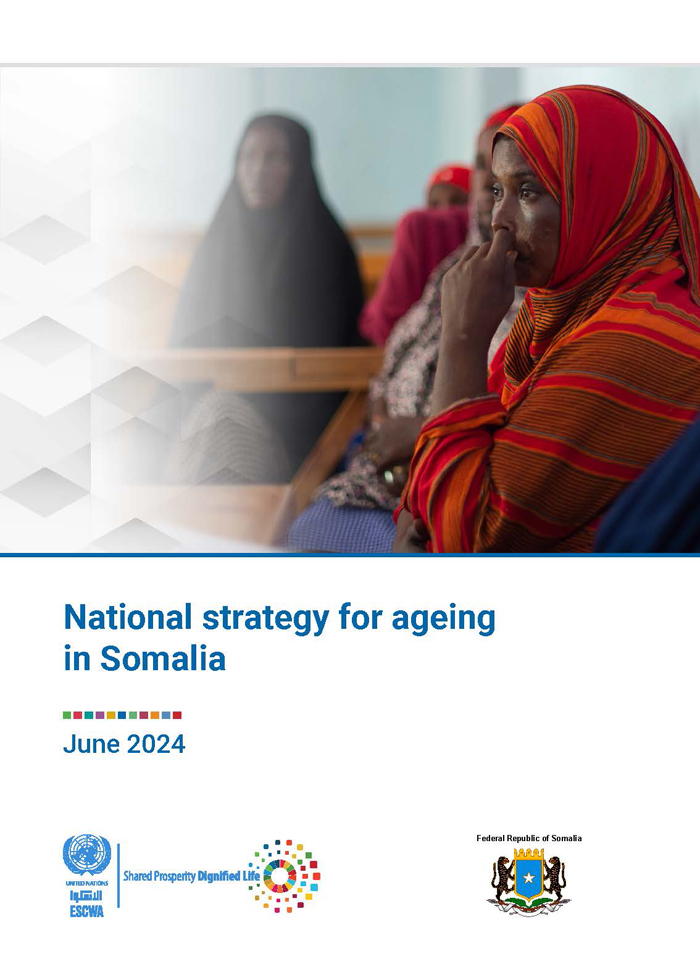
ESCWA Publication: E/ESCWA/CL2.GPID/2020/POLICY BRIEF.2
Country: Arab region
Publication Type: Policy briefs
Cluster: Gender Justice, Population and Inclusive Development
Focus Area: Population dynamics & migration
Initiatives: Monitoring Sustainable Development Goal Data
SDGs: Agenda 2030
Keywords: Covid-19, Internal migration, Migrants, Viruses
The impact of COVID-19 on migrants and refugees in the Arab region
December 2020
Migrants and refugees are among the social groups most impacted by the COVID-19 crisis and are suffering disproportionately from its social and economic consequences. This publication is a joint work by ESCWA, UNHCR and ILO in collaboration with the members of the United Nations Issue-Based Coalition (IBC) on Migration in the Arab Region.
The paper examines the effects of the COVID-19 pandemic on migrants and refugees in the region. It focuses on several relevant areas including health, income security, the economy and education. It also addresses return and voluntary repatriation, and trafficking in persons during the pandemic. The paper focuses on the impact of the pandemic on specific groups, namely women, children and refugees. It concludes with a set of actionable short- and medium-term policy recommendations that could guide countries’ responses for protecting migrants and refugees in the areas of health, administrative measures, education, employment, access to information and justice among others. The recommendations are also available in a policy brief that was prepared based on the analysis presented in the technical paper.
Related content
Population dynamics & migration
,
Migrants and refugees are among the social groups most impacted by the COVID-19 crisis and are suffering disproportionately from its social and economic consequences. This publication is a joint work by ESCWA, UNHCR and ILO in collaboration with the members of the United Nations Issue-Based Coalition (IBC) on Migration in the Arab Region.
The paper examines the effects of the COVID-19 pandemic on migrants and refugees in the region. It focuses on several relevant areas including health, income security, the economy and education. It also addresses return and voluntary repatriation, and trafficking in persons during the pandemic. The paper focuses on the impact of the pandemic on specific groups, namely women, children and refugees. It concludes with a set of actionable short- and medium-term policy recommendations that could guide countries’ responses for protecting migrants and refugees in the areas of health, administrative measures, education, employment, access to information and justice among others. The recommendations are also available in a policy brief that was prepared based on the analysis presented in the technical paper.



